How Law Enforcement Efforts Connect Across Borders
Transnational organized crime is big business in the U.S., and the government is pouring resources into securing its borders against drug and human trafficking. Last night, we showed you how science, the Port of Miami, and the U.S. Coast Guard team up to fight back against these criminal networks. Tonight, we’re taking you deeper, looking at policing strategies that complement those efforts. From Florida’s Miami-Dade Sheriff’s Training Center, where officers from across the Western Hemisphere sharpen their skills, to Kansas City in the Midwest, where local police tackle crimes that start thousands of miles away. News Five’s Paul Lopez has the story.
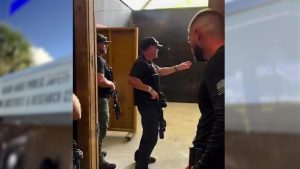 Paul Lopez, Reporting
Paul Lopez, Reporting
In Florida, the Miami-Dade Sheriff’s Office has a training center that houses its International Training Unit. The unit supports partnering U.S. countries with a wide range of international training courses, from advanced boating to special weapons and tactics, drug investigations and surveillance techniques, among many others. The center also provides specialized training in cold case investigations, homicide investigations and high-profile murders, to name a few. Countries across Central and South America and the Caribbean have seen hundreds of law enforcement officers being trained here.
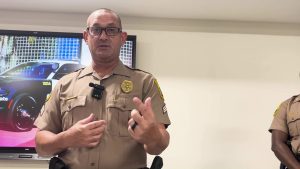
Sergeant Oscar Pla
Sergeant Oscar Pla, Miami-Dade Sheriff’s Office
“Every country we work with is amazing, they love to be here, and they are very receptive, not telling them how to be officers. That is not our job. Our job is to share our concepts, share our knowledge, share our practices with them, so that they can take back that training, and use it based on their laws and standard operating procedures within their department.”
Paul Lopez
“I don’t see Belize on the list, have there been any engagements prior on this end?”
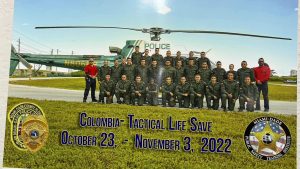 Sergeant Oscar Pla
Sergeant Oscar Pla
“Belize, not that is one country that has never reached out to us regarding training.”
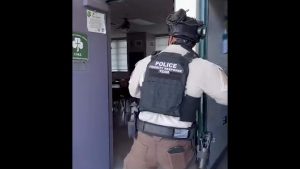 Step inside the training rooms at this center, and the walls tell a story, lined with images and milestones from law enforcement agencies across the Western Hemisphere. But these aren’t simply decorations; they’re reminders of real progress. The programs happening here deliver results, strengthening security and cooperation far beyond these walls.
Step inside the training rooms at this center, and the walls tell a story, lined with images and milestones from law enforcement agencies across the Western Hemisphere. But these aren’t simply decorations; they’re reminders of real progress. The programs happening here deliver results, strengthening security and cooperation far beyond these walls.
Sergeant Oscar Pla
“The U.S Ambassador to Guyana saying that for the first time in the country’s history there was an election with no problems and issues, that the professionalism of the officers were phenomenal and that I something we try to emphasize, professionalism, they community observes that and starts to see that and they actually say ok, we are coming around, instead of the corruption and the human rights violation and all that.”
 Sergeant Oscar Pla, of the Miami-Dade Sherriff’s Office, explained that the selection process to engage in these law enforcement courses begins at the International Narcotics and Law Enforcement (INL) section of each U.S. Embassy. Belize hasn’t sent any of its officers to take part in these specialized international training programs just yet, but that doesn’t mean we’re on the sidelines. The INL has been working hand-in-hand with local law enforcement on a range of initiatives right here at home.
Sergeant Oscar Pla, of the Miami-Dade Sherriff’s Office, explained that the selection process to engage in these law enforcement courses begins at the International Narcotics and Law Enforcement (INL) section of each U.S. Embassy. Belize hasn’t sent any of its officers to take part in these specialized international training programs just yet, but that doesn’t mean we’re on the sidelines. The INL has been working hand-in-hand with local law enforcement on a range of initiatives right here at home.
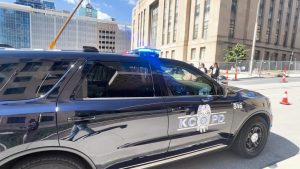 Sergeant Oscar Pla
Sergeant Oscar Pla
“It is a program that continues to grow. What we thought would have been five sessions with Haiti has led to assisting most of the Western Hemisphere.”
From training police officers in Florida, to on-the-ground policing in Kansas City. Here we heard from Major Jim Buck from the Kansas City Police’s Special Investigations Department. Kansas City, America’s third most populous city, comes with big-city challenges. Just like other major urban centers, law enforcement here is on the front lines, tackling everything from human trafficking to drugs and even gang activity.
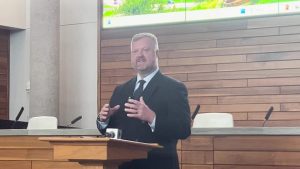
Jim Buck
Major Jim Buck, Special Investigations Dept., Kansas City Police Dept.
“A lot of people when they think about gangs they think about the MS 13, the crips, the bloods, the very organized gangs that have some what structured. Most of our gangs and groups in Kansas City are fairly lose. We don’t have a hierarchy as we use to among these groups. It could be as simple as six, seven kids that live on a couple blocks together and they decided that they are going to get together and basically cause mayhem and violence.”
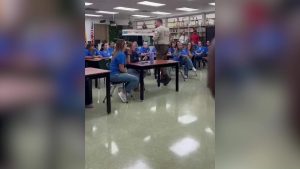 Drug overdose is also a common issue in the city. Fentanyl that flows in through the city from Mexico, and other types of drugs, has led to more strategic policing. Major Buck says the focus isn’t on going after every single user. Instead, officers are making sure their resources are aimed where they’ll make the biggest impact. They are going after the traffickers and distributors.
Drug overdose is also a common issue in the city. Fentanyl that flows in through the city from Mexico, and other types of drugs, has led to more strategic policing. Major Buck says the focus isn’t on going after every single user. Instead, officers are making sure their resources are aimed where they’ll make the biggest impact. They are going after the traffickers and distributors.
Major Jim Buck
“It is very prevalent in Kansas City. I think the last stat I saw, last year, Kansas City alone lost around twelve hundred people to drug overdose. Thankfully that has come down, but it is readily available. A lot of the complaints from the community are literally open air drug use.”
From training law enforcement officers across the Western Hemisphere to boots-on-the-ground police work in America’s Midwest, it’s all part of the same mission. And tonight, we take a closer look at how these efforts are connected. Transnational organized crime has pushed the U.S. to begin its response way beyond its borders, but more so on its home soil. Reporting for News Five, I am Paul Lopez.




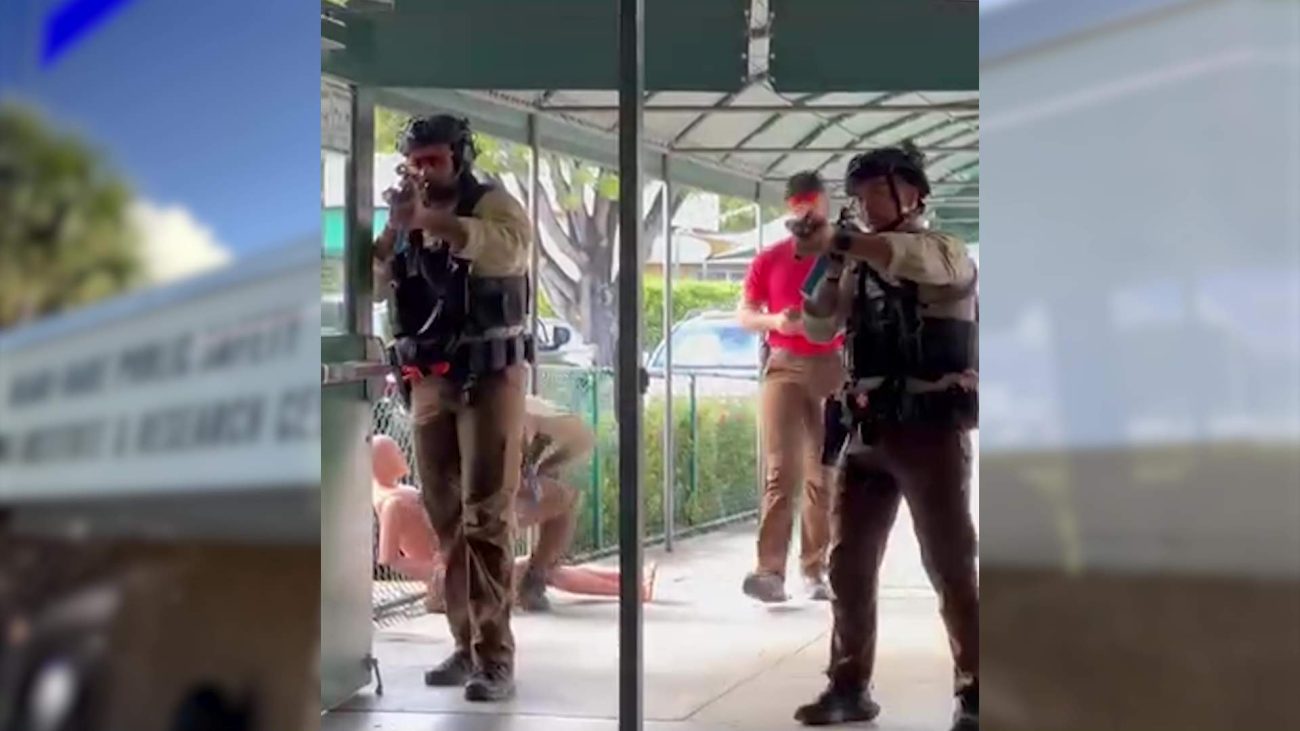
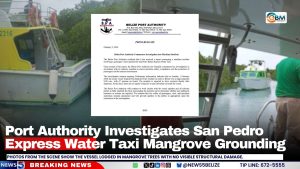
Facebook Comments